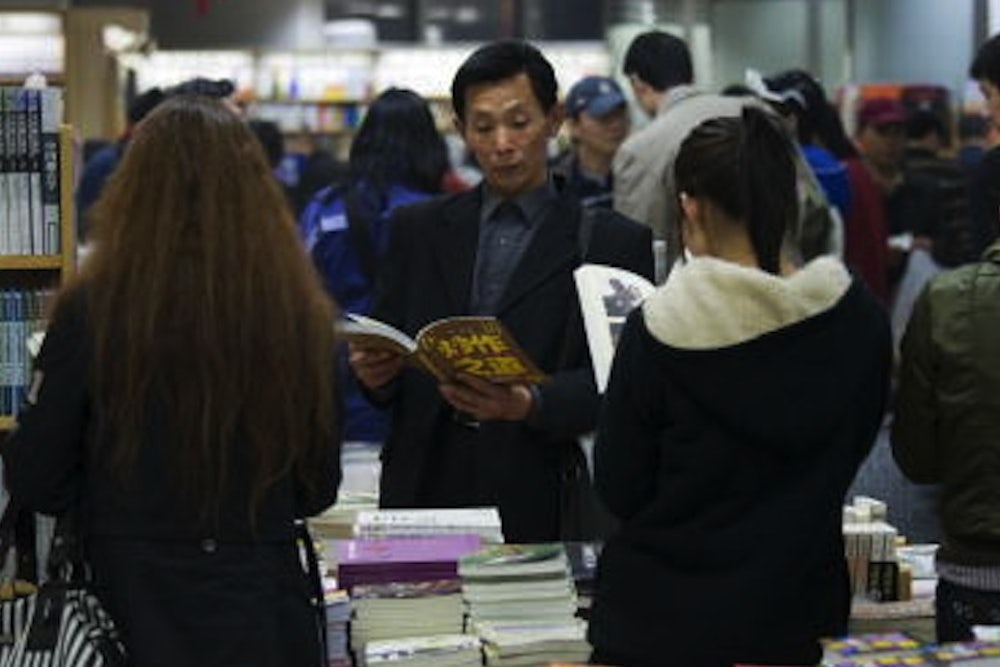When New York Times reporter Charles Duhigg was lining up publicity for his recent book on the science of self-help, one country, in particular, wanted him to visit: South Korea, where The Power of Habit sold 280,000 copies. This popularity might have something to do with South Korea’s rapid rise from mid-century decimation to the twelfth-largest economy in the world today. Nothing signals middle-class respectability quite so quickly as a well-lined bookshelf—all the better if those books invoke some idea of self-improvement and progress. (In China, Walter Isaacson’s biography of Steve Jobs was a recent hit.) Where the bourgeoisie is growing, so is the book market.
In emerging economies all over the world, U.S. book publishers are angling for new audiences. When Penguin and Random House announced a merger last year, Publishing Perspectives deduced that Penguin’s growing operations in India, China, and Brazil, and Random House’s dominance in Latin America, played a part in negotiations. Amazon extended its reach to Mexico this August and is already peddling two million titles there. A recent report from the Association of American Publishers shows sales by U.S. publishers abroad rose more than 7 percent between 2011 and 2012.
To some extent, this is just straightforward market expansion. Often the books that sell best in translation are also blockbusters at home: Game of Thrones, the Twilight series. But rapidly expanding economies—and book markets—do seem to have particular literary tastes. Elizabeth Gilbert’s Eat, Pray, Love sequel, Committed: A Skeptic Makes Peace with Marriage, was a flop at home, but in Brazil, it was a success—selling 530,154 copies to date. Of course, it might have helped that Gilbert settled down with a Brazilian hunk.
